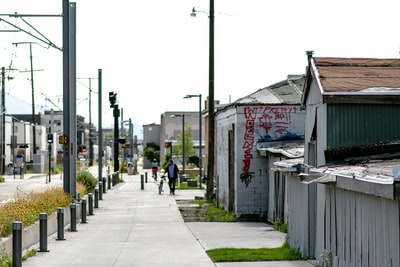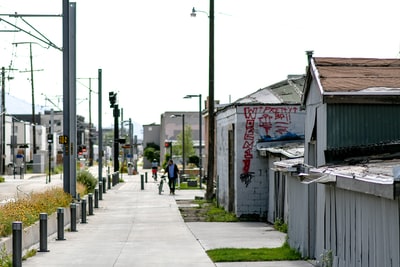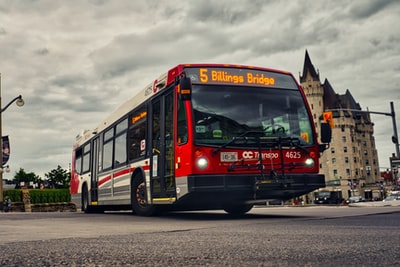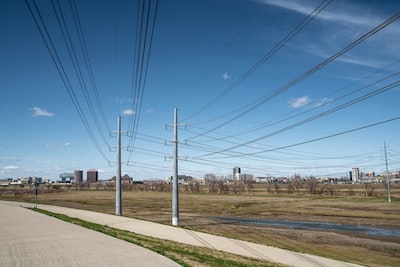Are you a student or young professional looking for affordable living in Winnipeg? The cost of living in this vibrant city can be a challenge to navigate, but fear not – we have you covered. From affordable rent options in up-and-coming neighborhoods to budget-friendly dining spots, there are plenty of ways to make your money stretch further in Winnipeg.
Whether you’re searching for a cozy apartment near campus or a trendy loft in the Exchange District, we’ll help you find the perfect place to call home without breaking the bank. Join us as we explore the ins and outs of Winnipeg’s cost of living and discover how you can make the most of your budget in this dynamic city.
Table of Contents
Cost of Housing
Housing prices vary based on the neighborhood, with rental costs typically more affordable than in larger cities. Transportation expenses can include public transit or owning a vehicle. Food and dining costs can range depending on where you shop and eat. It’s also crucial to budget for entertainment, utilities, and healthcare expenses. By understanding these aspects of the cost of living in Winnipeg, you can better manage your finances and enjoy all that the city has to offer.
Transportation Expenses
Winnipeg offers various transportation options, including public transit, cycling, and driving. Understanding the costs is essential. The city’s public transit system is convenient and cost-effective, with bus fares depending on age and frequency of use. Cyclists can benefit from the city’s bike-friendly infrastructure to save on transportation costs and promote a healthier lifestyle. For drivers, it’s important to consider fuel, maintenance, insurance, and parking fees.
By planning and exploring these options, you can manage your transportation budget effectively. Transportation costs are significant in Winnipeg’s cost of living. Understanding the factors contributing to these expenses is crucial for residents and newcomers. Owning a vehicle in Winnipeg comes with its own financial considerations, including maintenance, insurance, and parking. Whether you prefer public transit, cycling, or driving, knowing Winnipeg’s transportation costs will help you make informed choices and budget effectively for city living.
Food and Dining Costs
When it comes to food in Winnipeg, there are two main factors to consider: dining out costs and the affordability of cooking at home. Residents can save money by shopping at discount grocery stores and purchasing items in bulk. By doing so, they can enjoy a variety of healthy meals while also saving money in the long run. Additionally, being aware of seasonal produce and meal prepping in advance can also lead to significant savings on food costs.
Understanding the range of food prices in Winnipeg is essential for making informed choices that align with individual budgets and lifestyles. By being aware of the various options available and being conscious of where to find the best deals, residents can better manage their food expenses. Whether it’s dining out or cooking at home, there are ways to enjoy delicious meals without breaking the bank. With some planning and knowledge of the local food market, eating well in Winnipeg can be affordable and enjoyable.
Entertainment and Recreation Budget
Winnipeg has a wide range of entertainment options for both locals and tourists. There are live music, theater performances, art exhibitions, and festivals available for everyone. It’s important to balance paid activities with free events when planning your entertainment expenses in Winnipeg.
Setting a reasonable budget will help you enjoy everything the city has to offer without overspending. Luckily, Winnipeg has many budget-friendly entertainment options like outdoor concerts, community events, and public art installations. By exploring these affordable options, you can have a full social calendar without spending too much.
To enjoy Winnipeg without straining your finances, it’s crucial to prioritize your entertainment spending and plan ahead. Making smart choices will help you make the most of the vibrant entertainment scene in this city.
Utilities and Bills
When trying to lose weight, focus on creating healthy habits that can be maintained long-term. This means eating balanced meals, staying active, and managing stress. Making small, sustainable changes to your lifestyle can help you reach weight loss goals and improve overall health.
Stay consistent and keep moving forward, even if setbacks occur. Stick to your goals and stay focused.
Healthcare Expenses
Our new product line is made to meet customer needs and offer high-quality products at competitive prices. Our team has dedicated effort to develop these new offerings, ensuring they meet our quality and reliability standards. We are confident customers will be pleased with the results, exceeding their expectations. Thank you for your ongoing support as we aim to provide the best products on the market.
articly.ai taginfluencermarketing.ai tag
Moving To The Peg! A city of opportunity, diversity, and charm. From the bustling downtown core to the sprawling suburbs, Winnipeg offers something for everyone.
Joining Moving To The Peg will open doors to essential resources, tips, and connections to help navigate the cost of living in this vibrant city. With affordable housing, world-class amenities, and a thriving job market, Winnipeg is the perfect place to call home.
Say goodbye to uncertainty and hello to a smooth and successful move with Moving To The Peg!
Frequently Asked Questions
The average cost of rent for a one-bedroom apartment in Winnipeg ranges from $800 to $1200 per month, depending on the neighborhood and amenities.
Yes, there are affordable housing options in Winnipeg such as shared housing, student residences, and subsidized housing programs. It’s important to research and explore these options to find the best fit for your budget.
The average cost of groceries for one person in Winnipeg is around $200-300 per month. Dining out at restaurants can range from $10-20 for a meal, depending on the restaurant.
Winnipeg has a public transportation system, including buses and a light rail transit system. Students may also be eligible for discounted transit passes. There are also bike lanes and walking paths for those who prefer to walk or bike around the city.
Final Thoughts
In conclusion, the cost of living in Winnipeg is a complex and ever-changing landscape that must be navigated with caution and mindfulness. From housing prices to grocery costs, residents must stay diligent in managing their finances to ensure a comfortable standard of living.
Despite the challenges, Winnipeg offers a unique blend of affordability and quality of life that is hard to find elsewhere. By staying informed and proactive, individuals can thrive in this vibrant and dynamic city.
Ultimately, the cost of living in Winnipeg is a reflection of its rich history, diverse culture, and promising future. It is a city worth investing in, both financially and emotionally.
So, let us embrace the challenges and opportunities that come with living in this prairie metropolis and strive to make Winnipeg a place where everyone can thrive.
When I first moved from Zambia to Winnipeg, I had no idea what to expect. The winters were colder than anything I had ever experienced, the culture was new, and navigating things like housing, jobs, and even the bus system felt overwhelming. I spent hours researching, learning from trial and error, and leaning on the kindness of locals who helped me adjust. That’s why I started MovingToThePeg.com—to make the transition easier for others. Whether you’re coming from Africa, Asia, or another part of Canada, I want this site to be a resource where you can find real, practical advice about settling in Winnipeg. From choosing the right neighborhood to finding community, I’m here to share everything I’ve learned so you can feel at home faster.









Leave a Reply